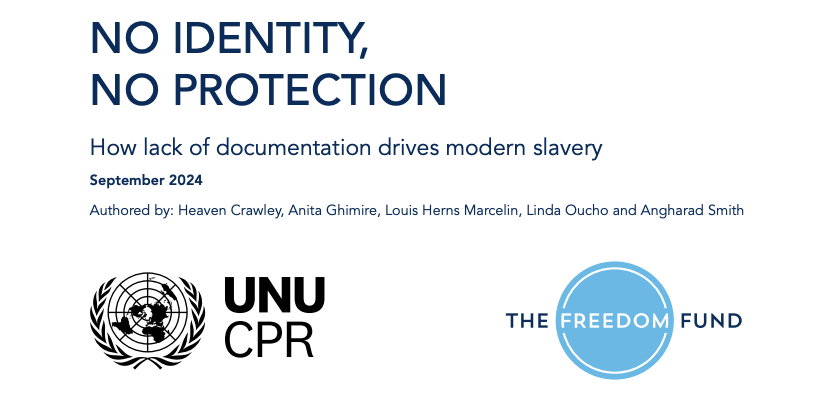
Today marks International Identity Day 2024. Lack of identification is a significant risk factor in vulnerability to modern slavery and human trafficking. 850 million (1 in 9) people globally lack official documentation. This population is therefore out of reach of government protection from exploitation and abuse, as well as access to essential services including education and healthcare.
These risk factors are investigated by United Nations University Centre for Policy Research (UNU-CPR), in collaboration with the Freedom Fund. Reliefweb highlights important findings:
-
New research reveals the links between lacking official documentation and modern slavery. Without legal identity, people struggle to access basic services and are often forced into informal, dangerous and exploitative work.
-
An estimated 850 million people around the world do not have legal identity. Women, children, rural dwellers, migrants, refugees and stateless individuals are most affected.
-
Bureaucratic inefficiencies, high costs and legal gaps prevent people from securing documentation while social isolation, discrimination and stigma further worsen the situation for marginalised groups.
-
People without identity documents are often confined to informal, low-wage work where exploitation and abuse frequently go unreported due to fear of approaching authorities.
-
Government actions are urgently needed to address this global issue, including legislative reforms, community engagement and international cooperation.
See the full Freedom Fund report here.